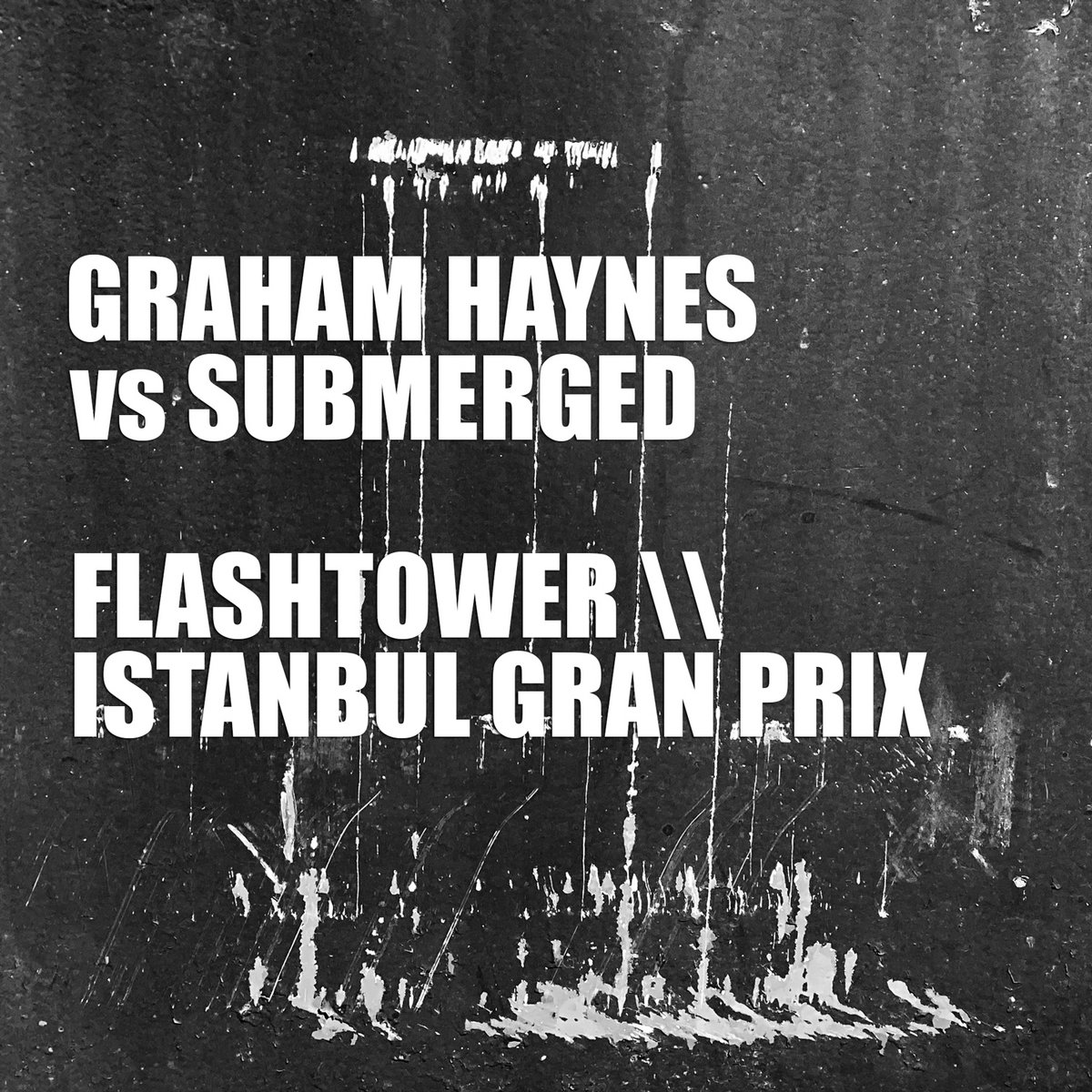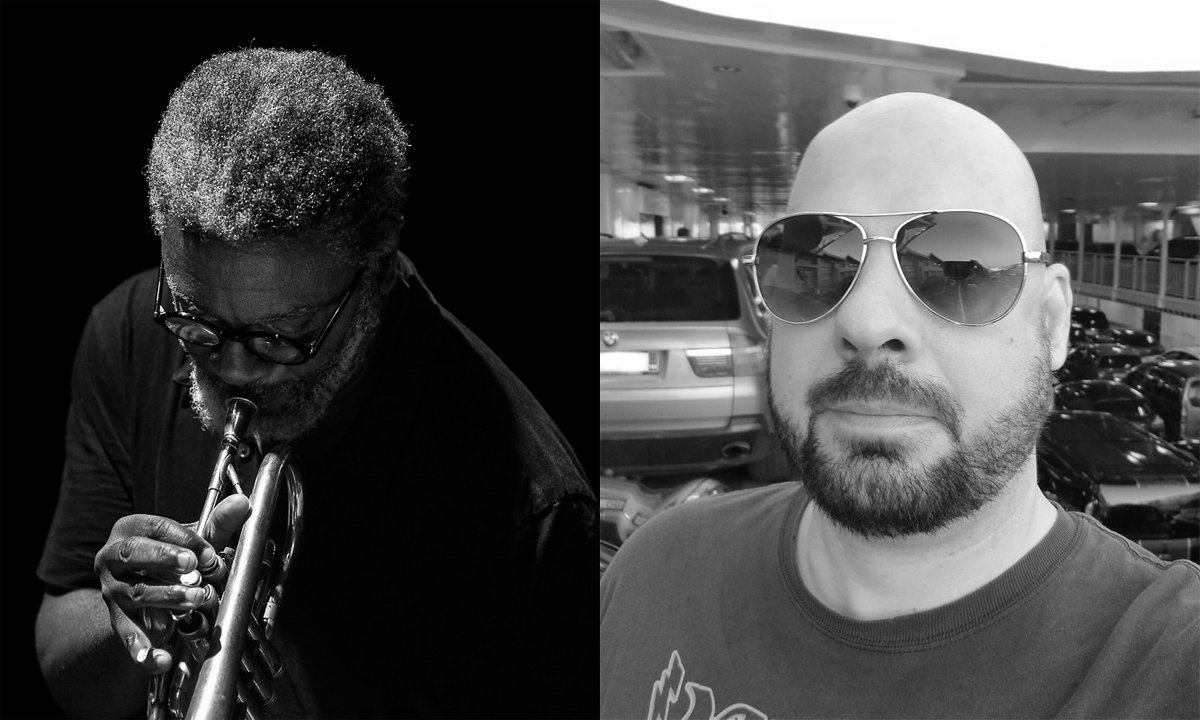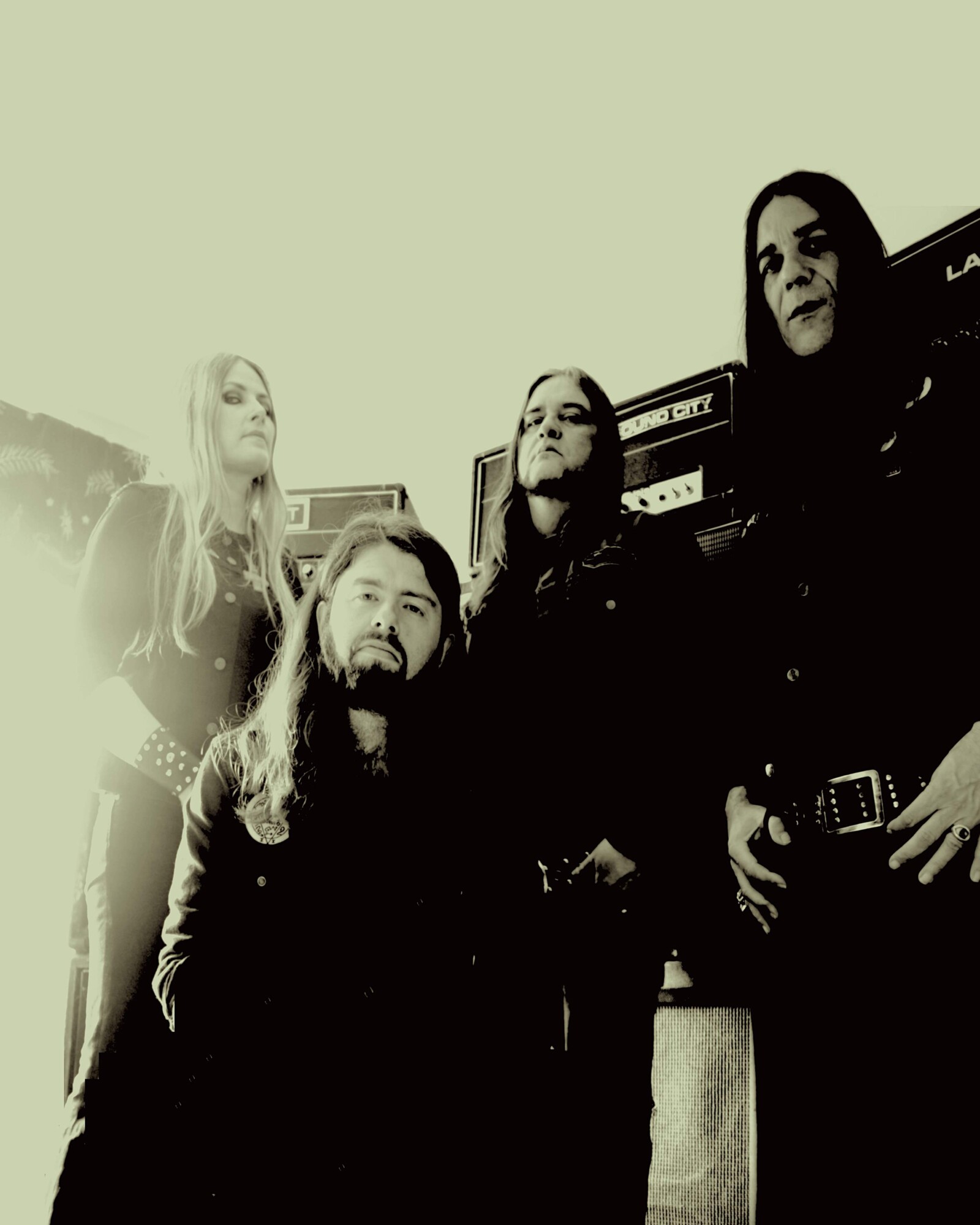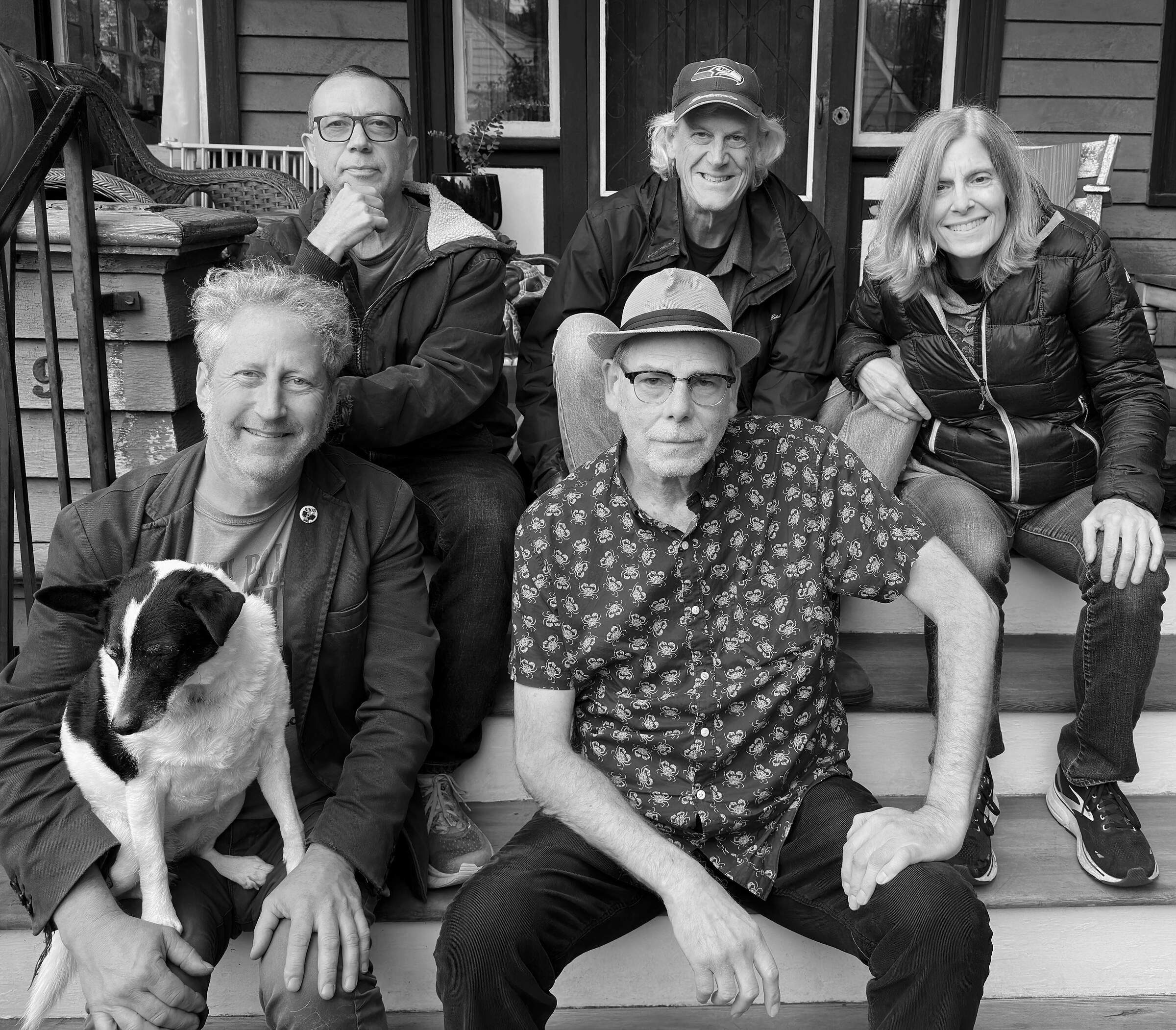Graham Haynes vs Submerged | Interview | Stream ‘Flashtower’ and ‘Istanbul Gran Prix’
A studio collaboration between visionary cornet player Graham Haynes and industrial-strength drum ‘n’ bass producer Kurt Glück-Aeg, aka Submerged.
Burning Ambulance Music is the label arm of Burning Ambulance, an arts and culture website and podcast founded in 2010 by journalist/author Phil Freeman and artist/designer I.A. Freeman. The label recently announced ‘Echolocation’, the first-ever studio collaboration between visionary cornet player Graham Haynes and industrial-strength drum ‘n’ bass producer and Ohm Resistance label head Kurt Glück-Aeg, aka Submerged. Today we are premiering the first tracks from the album, ‘Flashtower’ and ‘Istanbul Gran Prix’. Album will be available in July.
‘Echolocation’ was produced remotely; Haynes recorded his tracks in Brazil and Submerged dissected and reassembled them in Estonia, with additional contributions from skintape and Evis May.
The album will be available digitally and as a limited edition CD in a heavy-duty tip-on gatefold mini LP sleeve.

Where did you two meet and how did the idea to record together emerged? What was the initial idea behind this collaboration?
Graham Haynes: I first met Kurt at a gig we did with Bill Laswell and Method of Defiance at the Knitting Factory in NY in 2006 or 07. It was a great gig from what I remember featuring Dr. Israel, Guy Licata on drums and Andy Hawkins on guitar.
Kurt Glück-Aeg: Graham and I met in the TRENCHES, we played the Knitting Factory together as Method of Defiance in the mid 00s. Show was Bill Laswell, me, G, Guy Licata on buckets, Doc on vocals, and Andy Hawkins on guitar. Was a RAGER!
In addition Enduser and Richie Divine played late into the night…
Phil from Burning Ambulance conceptualized us doing this record together, when he pitched it, due to our previous show, I was all about it. Graham kicks ass!
“I like to be in the moment”
What was the arranging process like? Is your approach to laying down music a building block process?
Kurt: I made the general idea of the beat, sent it to Graham, he tracked, and sent it back. I made the arrangements based on the sounds and playing he sent me, and it was more of a sculpture than a building block thing, just hacking away until it sounded right. I do it until it feels good.
Graham: Kurt created the tracks. Once I got them I listened one by one several times and then made some melodies and sketches. In some cases I changed and played something different once I got in the studio. I planned out what effects I wanted on my horn for each track. I like to be in the moment, so in some cases I changed once I got in the studio. I laid down several individual tracks per tune. I would play in the improvised (solo) sections first and then go back and play the melodies I created in A and B sections. I like to keep solo sections and chorus/verse sections separate when I’m recording. That way I can keep things very loose and spontaneous in the improvised sections and not have to worry about forms of the melody sections until I’m ready to deal with them. Each track is different. Some of Kurt’s ideas and mine were more structured, others were more off the cuff.
What would you say influenced you the most to record these tracks?
Graham: Well, It was really Philip’s [note – Phillip Freeman – founder of Burning Ambulance blog\label] idea to make the record. He called me and told me what he had in mind and I told him how I would like to do it and we went from there.
Kurt: For me it’s easy, my daughter was just born, I had a fun time taking these emotions and looking backwards at PLACES through this lense of new life. Was a super fun, super unexpected, and very rewarding album to make. Hats off to G for killing it on the horn selection.
How are you coping with the current pandemic and what are your predictions for the future? Do you think the music industry will adapt to it?
Graham: Well, I had the virus back in April 2020. It took a lot out of me for about a month then I started recovering. I didn’t play my horn for a period of several months and I was trying to focus on a large work I am composing for orchestra and voices. I wasn’t thinking about the horn at all really until Philip got in contact with me. Then I had to start “woodshedding” getting my chops back. It was a very dark period for a long time.
When Philip reached out to me it was kind of a “light at the end of the tunnel” kind of thing. I’m very happy he called me to do this! By the time I finished recording I was starting to feel optimistic about the scene, the industry etc. I lost several gigs that I won’t get back. Now things in NYC are starting to open and I think they will continue to open internationally , little by little, now that vaccines are available etc. I don’t think things will be 100% the way they were. The scene will have to make some adjustments that will become permanent I think. I’m not really sure how things will look but they won’t be exactly the same. The fact that so many of us have lost work, so many places have closed, so many festivals will not come back AND, so many of us have been recording virtually with others in far away locations, will open up a new way of working for the future, indefinitely.
Kurt: It’s the plague humanity has dealt with this shit before. We always kinda mess ourselves up, and it just goes to show the more information technology we have, it’s still kinda zero-sum on humans being able to use it to our benefit. For every one person that is intelligent enough to evaluate scientific information and onboard best practices from it, you have like 6 anti-intellectual morons playing to their own narcissistic and selfish desires, like they know more than everyone else because of YouTube destabilization propaganda. Music is music it’s hard enough to sell as it is, but the industry seems to be working hard to hustle, and I want to shout out Bandcamp for taking the biggest stride to provide us artists with the most help.
You’re both very involved with other projects. Would you mind sharing what else are you currently up to?
Kurt: I was on a Scorn record with Kool Keith this year, super hyped about that he’s my favorite rapper of all time. I love Scorn more than anything else really electronically, even though I have huge love for all drum & bass, so it was a monumental occasion for me. Also making a new Blood of Heroes record with Mick as a member of the band, and Justin Broadrick, and some surprise vocalists…should be ready to come out this year! A great year and this record I had a whole bunch of new studio gear to work with to compose and mix, I’m over the moon lately with music.
Graham: As I said I’m composing a large work for orchestra and chorus as we speak. I will have to then try to find an orchestra and chorus to perform it . No small feat !!! I’m also looking into possibilities to do Conduction® , a concept of conducting groups to perform spontaneously without music, developed by the late Butch Morris. I’ve been doing this with several groups, most notably at NuBlu with the NuBlu orchestra.
Do you find yourself to be a perfectionist, in control, or do your ideas lead you, taking on a life of their own?
Kurt: I follow the idea. Tony Maimone taught me that in the studio, your focus has to be making the track the best it can be, so I always apply this as my working methodology.
Graham: One of the reasons I compose using notation and I also study a lot of theoretical and systematic material is so I can try to perfect the ideas I have and then I try to open them up, or, de-construct them.

What would you say did you learn from improvisation?
Graham: Improvising keeps me in touch and tune with the universe as it is, in real time.
Kurt: HOW TO LISTEN. Improvisation is a conversation, and if you are doing it well, step 1 is LISTEN for the point that makes sense for you to participate, and raise the conversation to the most artistic stimulation possible.
Klemen Breznikar
Burning Ambulance Official Website / Bandcamp



